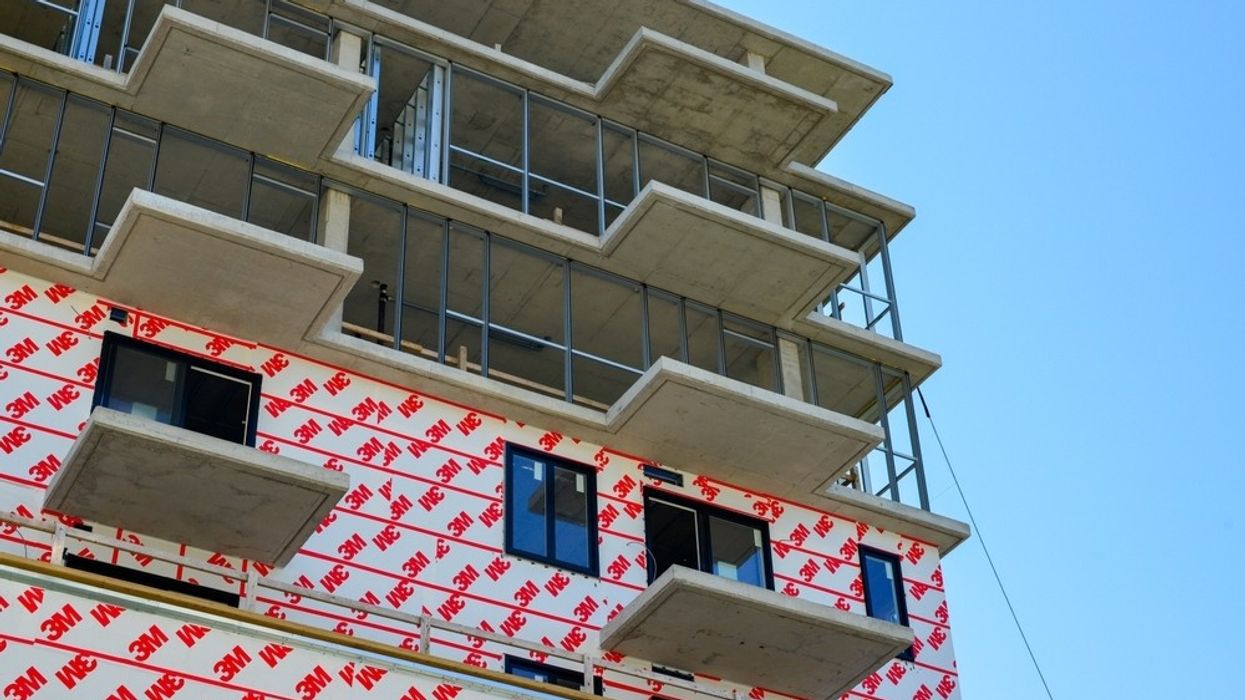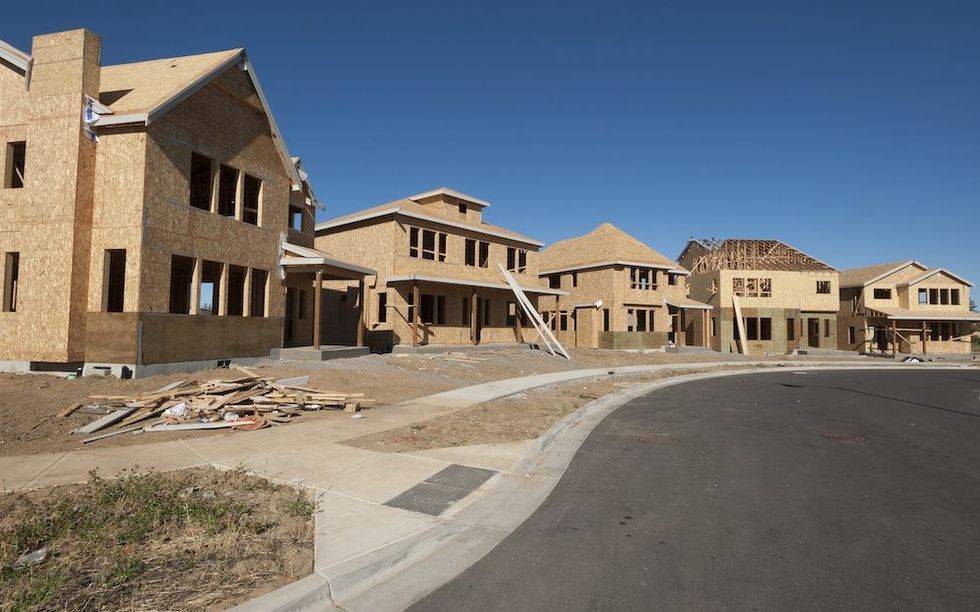As Canadian politicians, urban planners, and developers scream at the top of their lungs that the country needs more housing supply, the reality is that we still won’t see a notable uptick in housing starts this year. In fact, according to the latest Housing Market Outlook released by the Canadian Mortgage and Housing Corporation (CMHC), Canada’s housing starts are expected to decline in 2024. Not surprisingly, perpetually high interest rates are to blame.
“Higher interest rates made it challenging for builders and developers to get financing,” reads the report. “This immediately slowed the construction of smaller buildings such as single-detached homes. We expect interest rate increases to slow apartment starts in 2024. The increased level of apartment starts in 2023 was likely the result of financing secured before interest rates began to rise.”
The current lag comes after the country experienced historically high levels of starts in recent years. According to CMHC, the good news is that they’re expected to recover in 2025 and 2026, something that will reflect a lagged effect of higher interest rates on new construction.
Not that anyone currently looking for a rental needs the reminder, but the report highlights the dire situation in Canada’s rental market, where supply is no match for demand. Despite an increase in rental housing coming on the market in 2023, supply is not forecast to keep up with the want and need for homes, resulting in higher rents and lower vacancy rates. Underscoring this, CMHC anticipates a decrease from the record-high rental apartment construction that characterized recent years. On the demand side, things like high costs of renters transitioning into home ownership and record-breaking population growth are putting increased pressure on the country’s rental market.
While Canada’s homeownership dialled back the drama in recent years after a red-hot pandemic-inspired run, there are signs it’s coming back to life with the spring selling season. According to CMHC, both prices and sales are expected to rise in the home ownership market in 2024. In fact, the organization predicts that, by 2025, prices could reach peak levels recorded in early 2022 and surpass them in 2026, driven by high demand. While CMHC says that home sales will rebound in 2024, they’ll remain below the 2020-21 record levels, due to affordability challenges among prospective buyers.
"Purpose-built rental starts, fuelled by unprecedented demand and government support, hit record levels in 2023, sustaining overall housing starts in Canada near historically high levels,” says Bob Dugan, Chief Economist for CMHC. “However, unfavourable financing conditions are expected to make it more difficult for homebuilders to start new rental projects in 2024. We anticipate by 2025-2026 lower interest rates, continued government support, and policies encouraging greater density in urban centres should make more projects viable. Lower interest rates will also benefit homebuyers, as real income and confidence levels improve. Consequently, more homes are expected to be built in 2025-2026."
That’s not to say that all cities and provinces are seeing a slump on home starts; we’re seeing a drastically different situation between them. In the notoriously pricey Vancouver, new home construction is expected to slow from record levels in 2023 due to higher interest rates catching up with construction timelines, according to CMHC. Meanwhile, demand pressures will push sales, prices, and rents higher throughout the forecast period, according to the report.
In Toronto – another increasingly unattainable housing market – total starts are expected to decline in 2024 and 2025 due to high construction and financing costs. The city’s infamous home prices are expected to resume growth in 2024, making homeownership affordability a persistent challenge. Meanwhile, the rental vacancy rate will increase slightly, but overall rental market conditions will remain tight, says CMHC.
On the other hand, Calgary is expected to see strong supply growth as home construction responds to high demand and population growth. This demand pressure will also continue to tighten the rental market and increase resale market activity. Similarly, housing starts activity will remain strong in nearby Edmonton, something driven by strong economic conditions, while sales and home prices are expected to see modest growth. The rental market, however, will remain tight as demand continues to outpace supply.
In Ottawa, the capitol city can expect to see an increase in housing starts, something driven by multi-unit construction, according to CHMC. Both home prices and the rental vacancy rate should see modest growth, driven by a gradual decrease in mortgage rates and high rates of rental supply growth, respectively. Meanwhile, Montreal is expected to see a slight upturn through 2025 due to lower interest rates, but this will not keep pace with demand, says CMHC. Property prices will see a moderate recovery in 2024, while the rental market will continue to tighten due to supply and demand pressures.
All the while, the country's population will continue to grow in its biggest cities. Whether we'll be able to keep pace is anyone's guess at this point. One thing, however, is for certain: Canadians from coast to coast will eagerly tune in to the Bank of Canada's next interest rate announcement on April 10.























